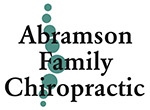When Playing an Instrument Causes Musculoskeletal Pain…
Playing-related musculoskeletal disorders (PRMD) are one of the most common issues that affect a musician’s ability to play their instrument and maintain their career. Among a group of 32 musicians with PRMD, those who received six weeks of treatment that included manual therapies—such as those commonly provided by doctors of chiropractic—reported greater improvements in pain than participants in a control group. Frontiers of Pain Research, June 2023
Diabetes and Unhealthy Lifestyle Can Triple Dementia Risk
The American Heart Association’s Life’s Simple 7 is a metric of behaviors—not smoking, maintaining a healthy weight, eating a healthy diet, getting regular exercise, and managing healthy blood glucose, cholesterol, and blood pressure levels—that can reduce the risk for heart disease. Using data from the UK Biobank study, researchers report that type 2 diabetics with four or fewer of these behaviors are two to three times more likely to develop dementia than non-diabetics with five or more of the Simple 7 healthy behaviors. Diabetes, Obesity, & Metabolism, July 2023
Be Cautious for Ticks
Warmer weather prompts many people to engage in outdoor activities that can place them at risk for crossing paths with ticks. Experts from Penn State Health note that if you’re going to spend time in nature, use repellents, wear light-colored clothes, and check for ticks before heading home. If you find a tick, carefully remove it with tweezers and be on alert for any symptoms of illness. Penn State Health, June 2023
Low-Dose Aspirin May Raise Anemia Risks Among Older Adults
Anemia is a condition caused by low levels of iron in the blood, which can lead to symptoms such as fatigue and a decline in overall function in older people. A recent study found that taking a daily low-dose aspirin may raise the risk for anemia in seniors by more than 20%. The findings highlight the need for careful consideration of the potential risks and benefits of aspirin use in older adults. Annals of Internal Medicine, May 2023
Heart-Healthy Diet Pattern
Following an analysis of data concerning more than 245,000 adults from 80 countries, researchers report that a diet characterized by a high intake of fruit, vegetables, legumes, nuts, fish, and
whole-fat dairy products is associated with a reduced risk for cardiovascular disease. European Heart Journal, July 2023
Hot Yoga Counters Effects of High-Salt Diet
Hot yoga is a type of yoga that takes place in a hot (more than 105 degrees Fahrenheit) and humid environment. In a recent study, researchers found that practicing hot yoga for just four weeks can reduce blood pressure and improve arterial function, even for individuals who normally consume a high-salt diet. American Journal of Physiology-Heart and Circulatory Physiology, June 2023
“If opportunity doesn't knock, build a door.” ~ Milton Berle
This information should not be substituted for medical or chiropractic advice. Any and all health care concerns, decisions, and actions must be done through the advice and counsel of a health care professional who is familiar with your updated medical history.
